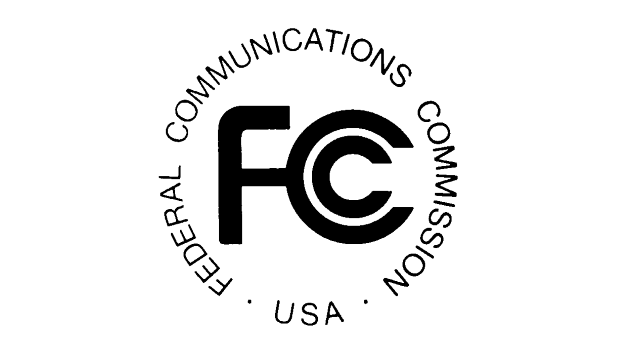On Monday, after first being voted on and ratified on party lines in February, the FCC’s contentious Net Neutrality rules are now listed in the Federal Register before being enacted into the new law of the land. As expected, once the rules were listed in the Register, the expected lawsuits were filed in order to block the rules from taking effect and all those against the new rules have 60 days from the date that the rules first become listed in the Register to file their complaints before the new rules go into effect.
Both USTelecom, representing the majority of US mobile carriers and the CTIA, representing the telecom industry as a whole have filed their own respective lawsuits. USTelecom President Walter McCormick had the following to say about the rules and went as far as to claim that the rules will cause infrastructure investment to slow down:
“USTelecom believes the FCC used the wrong approach to implementing net neutrality standards, which our industry supports and incorporates into everyday business practices. Our appeal is not focused on challenging the objectives articulated by the President, but instead the unjustifiable shift backward to common carrier regulation after more than a decade of significantly expanded broadband access and services for consumers under light-touch regulation. Reclassifying broadband Internet access as a public utility reverses decades of established legal precedent at the FCC.”
The CTIA, the federal lobbying body that is also responsible for representing wireless carriers in the nation’s capitol had the following to say from President Meredith Attwell Baker regarding how the new rules will impact its members, saying that the new rules all but forced it to file the suit:
“CTIA and the wireless industry have always supported an open Internet, which is why these rules will only chill investment and innovation and increase costs for consumers. “Instead of promoting greater industry investment in the connected world of tomorrow, the FCC opted to resuscitate a command-and-control regulatory regime, including a process where innovators must first seek permission from the FCC before rolling out new services. In so doing, the FCC usurped the role of Congress and departed from a bipartisan mobile-specific framework to create a new intrusive regulatory framework. We are confident that the courts will reject the FCC’s overreach for the third time, particularly with respect to mobile broadband services.”
After initially remaining silent, the National Cable and Telecommunications Association has also filed its own suit against the rules, with former U.S. Solicitor General Theodore B. Olson and former U.S. Assistant to the Solicitor General Miguel A. Estrada representing the trade group with the following statement:
“The FCC, in effect, has impermissibly rewritten the Communications Act,” said Olson. “Congress clearly intended for the Internet to evolve unencumbered by complex, inefficient government regulations. Instead of letting regulators play the central role in determining how the Internet evolves, they wanted these decisions to be left to the creativity of entrepreneurs, engineers and consumers. The Commission’s decision to expand its power and apply heavy regulation has undermined that core principle. I believe we have a powerful and compelling case.”
“The FCC Order contravenes critical principles of administrative law and fundamentally misapplied statutes passed by Congress,” added Estrada. “I believe that the courts will reject the Commission’s unsound process and faulty legal reasoning.”
“This appeal is not about net neutrality but the FCC’s unnecessary action to apply outdated utility style regulation to the most innovative network in our history,” said Michael Powell, NCTA President & CEO. “The FCC went far beyond the public’s call for sound net neutrality rules. Instead, it took the opportunity to engineer for itself a central role in regulating and directing the evolution of the Internet. We regrettably file this appeal and urge Congress to assert its role in setting national policy, by enacting legislation that fully protects the open Internet, without the harmful impact of public utility regulation.”
FCC Chairman Tom Wheeler expects the new rules and reclassification of internet access under Title II with specific changes for mobile and fixed-line broadband providers will be able to withstand the above and any further legal challenges, owing to the increased powers of oversight granted by Title II classification, which are much more extensive than the lack of oversight powers that formed the basis of the much weaker Open Internet Orders filed in 2004 and 2010. Verizon previously sued the FCC in order to vacate the 2010 Open Internet Order in 2012 and ended up victorious, while the FCC worked to find a rule set that would allow it to oversee/enforce Net Neutrality as well as enshrine it into law after it lost the court case.
A sustained consumer advocacy campaign that began to push for Net Neutrality rules in 2012 also reached a fever pitch in the weeks leading up to the FCC’s February vote, a push that saw an unprecedented level of public comment against the telecom industries attempts to continue years of anti-consumer practices regarding both mobile and fixed-line broadband access that even found its way into pop culture, thanks to comedian John Oliver’s explanation of the Net Neutrality debate over 10 months ago that galvanized many into action and brought mainstream attention to the debate.

It is downright Orwellian to call these regulations “net neutrality”. If I wrote a neutrality regulation, I’d write:
No internet traffic pipe may be prioritized.
If it required 300 pages, then it surely says more than that. And surely it has goals much broader than neutrality.